As of February 2023, Ukrainians' confidence in victory stays at 95%, compared to 56% in January 2022. It has remained stable and high since the very beginning of the war.
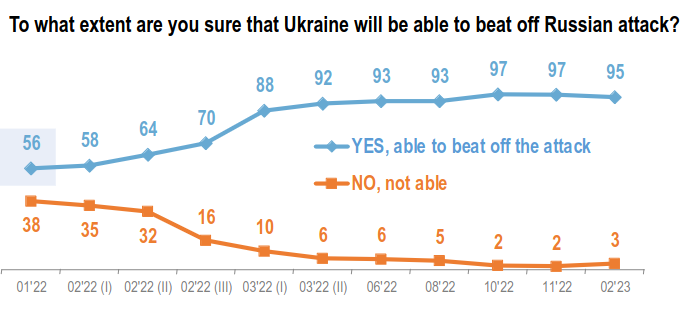
At the same time, unlike in the first month of the war, the majority have started thinking that victory may take nearly a year more of struggle to achieve.

After the year of war, Ukrainians have started rating Ukraine’s place in the world significantly higher. On a 7-point scale, most respondents rated Ukraine's position above average - 4.6 points, which is 1.5 times higher than the pre-war indicator (3.0). Also, the country's future in 10 years was assessed extremely positively, at 6.4 points out of 7.
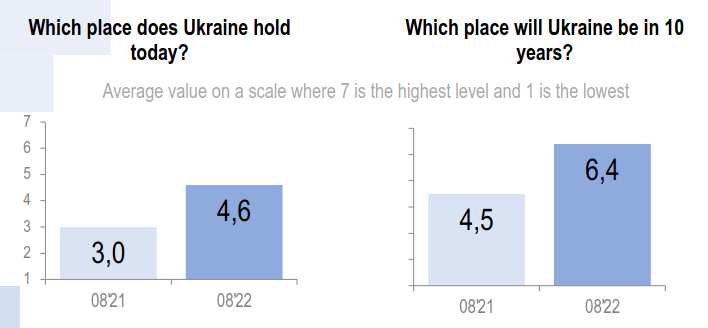
One of the direct consequences of the Russian invasion was the strengthening of support for Euro-Atlantic integration among Ukrainians, which revealed record figures for the country's entire history. These days, 87% support Ukraine joining the European Union, and 86% - NATO.
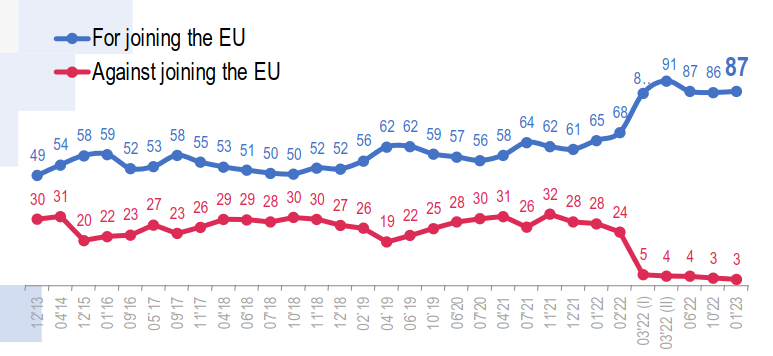

According to the “ally index,” Poland, Lithuania, UK, USA, and Canada are considered the most friendly countries by Ukrainians. On the other hand, Russia, Belarus, Hungary, and China are considered hostile.
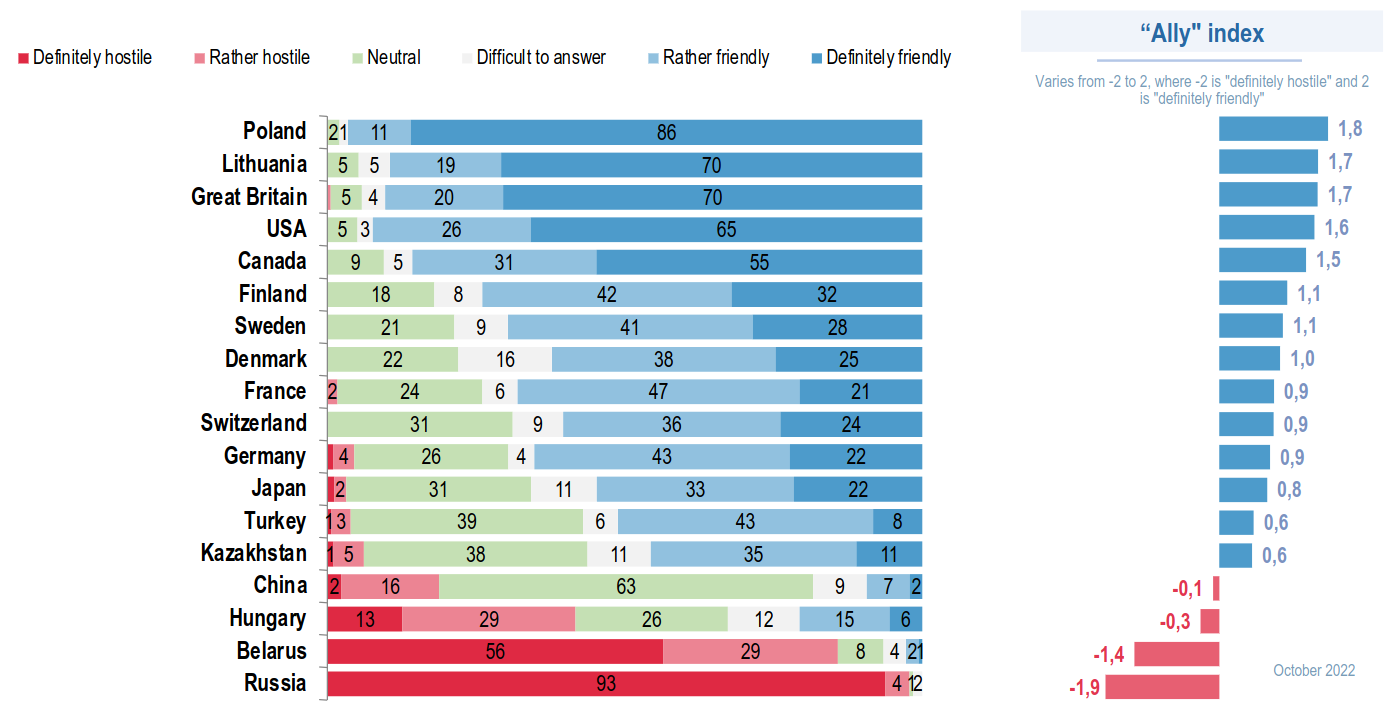
The year of war has accelerated the Ukrainization of Ukraine, abandoning the Soviet and Russian imperial past. In particular, the year of war outweighed a centuries-long policy of discrimination against the Ukrainian language since the number of those speaking only Ukrainian at home rose from 46% to 60%. In comparison, those speaking only Russian declined from 26% to 12%.

During the war, the financial situation of two-thirds of Ukrainians deteriorated while it has not changed for one-third.
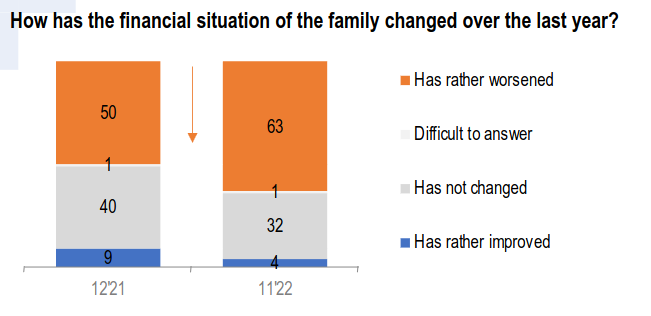
At the same time, almost 40% (against 14% at the end of 2021) experienced increased confidence in the future. Of course, this is primarily a consequence of faith in victory; men are more optimistic than women.
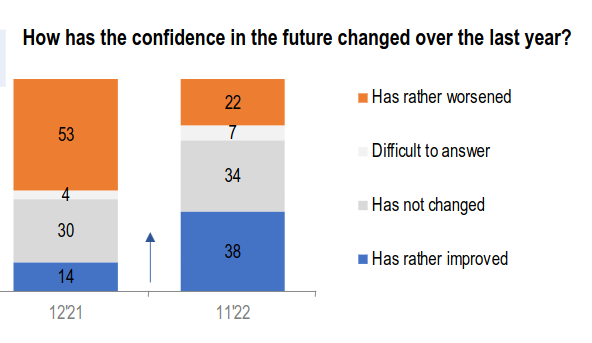
The priorities for the country’s recovery are the restoration of enterprises and jobs and the repair of damaged objects because most Ukrainians want to work, not receive social assistance. For residents of the east, as the most affected region, the issue of damage repair is more critical because many civilian objects were affected by the aggressor's actions, and rebuilding for them means the opportunity to return home.

Trust in the Armed Forces of Ukraine and President of Ukraine has skyrocketed.
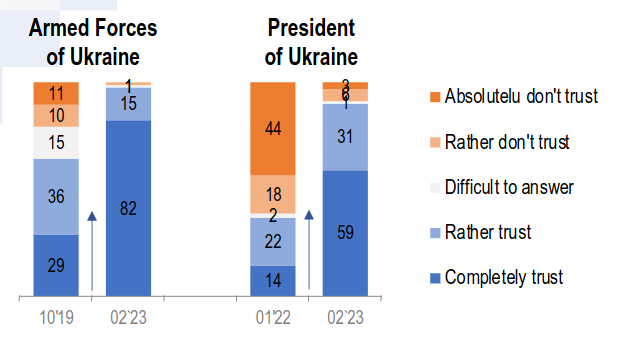
Also, despite the war, Ukrainians are finally thinking that things in Ukraine are going in the right direction, which was not the case for most of the years of surveys. The indicator of the correct direction of the country’s development is the highest for the entire history of measurements.

While overall trust to national media in Ukraine has increased, people started consuming information more from groups such as Telegram rather than TV or online media. Most likely, this is due to Telegram having quicker updates, which is important during the war even though information there is not always verified.
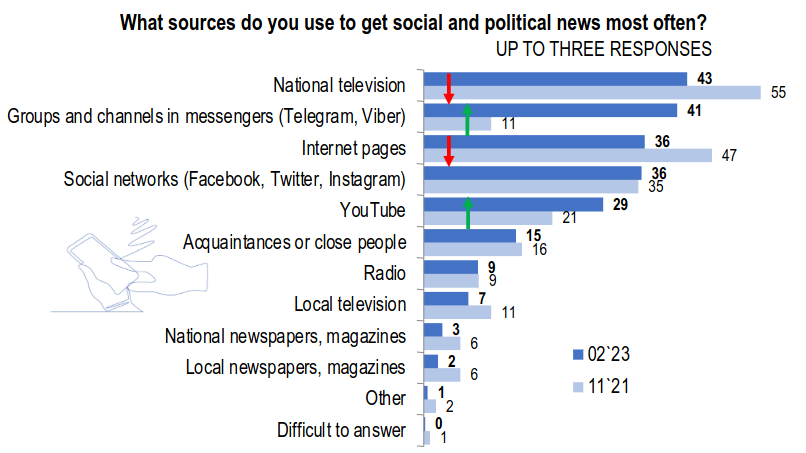
Like at the beginning of the war, a year later, almost two-thirds of Ukrainians think it is necessary to significantly limit themselves in entertainment and shopping during the war. On the other hand, one-third think it is necessary to try to live a full life.
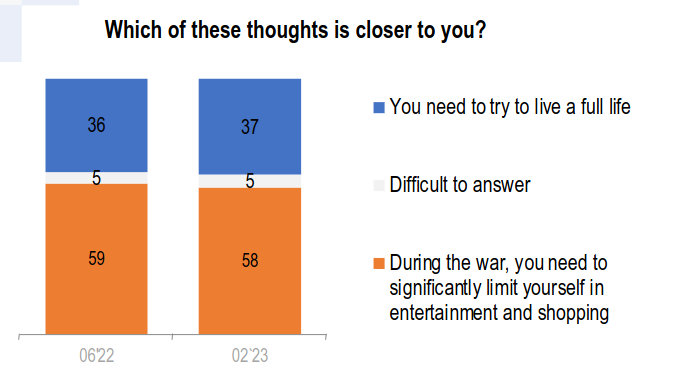
33% of Ukrainians said their health deteriorated due to the war, 17% said they experienced the death of one of their loved ones due to the war, and 13% had one of their loved ones injured. 18% reported losing their job, although among those who worked before the war, 36% lost their job. An especially difficult situation was in the country's east due to active hostilities and more severe damage.
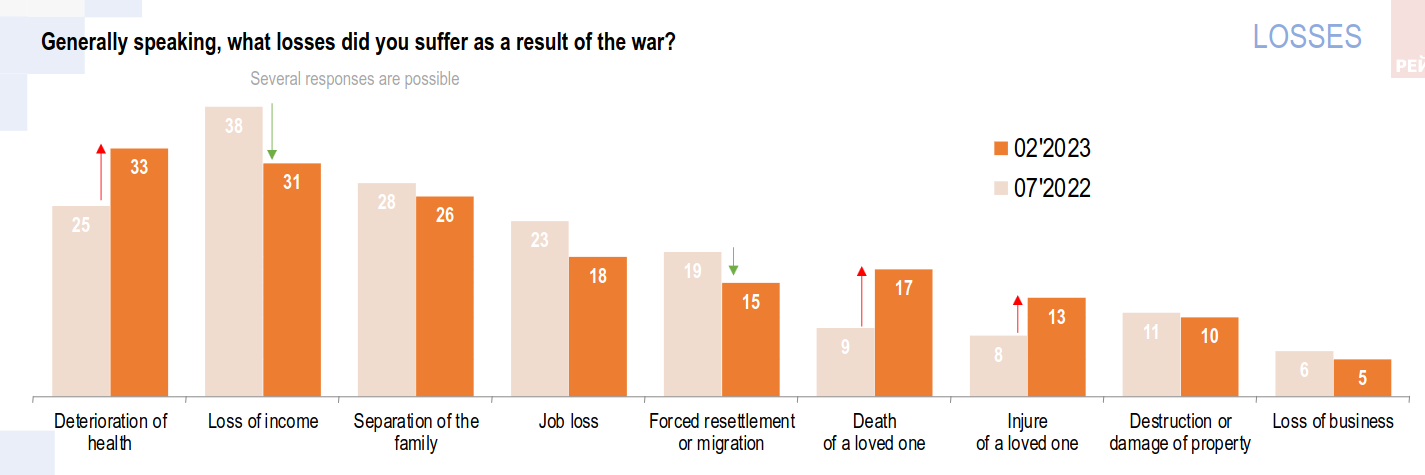
The survey was conducted by Ukraine's Rating sociological agency in February 2022 in the entire Ukrainian territory except for occupied Crimea and the occupied part of Donbas. The respondents were interviewed by phone.
Related:
- 65% of EU citizens back military support for Ukraine – poll
- Poll shows majority of Europeans believe in Ukraine’s victory in war with Russia
- Russia’s war has displaced two-thirds of Ukrainians in hostilities-affected areas – poll
- Record-high 86% of Ukrainians support country’s accession to NATO, poll shows
- Support for Ukraine declines among Americans – NORC Poll
- Ukrainians in all regions overwhelmingly reject territorial concessions to Russia – poll
- 89% of Ukrainians want to keep fighting even after Russian nuclear strike

